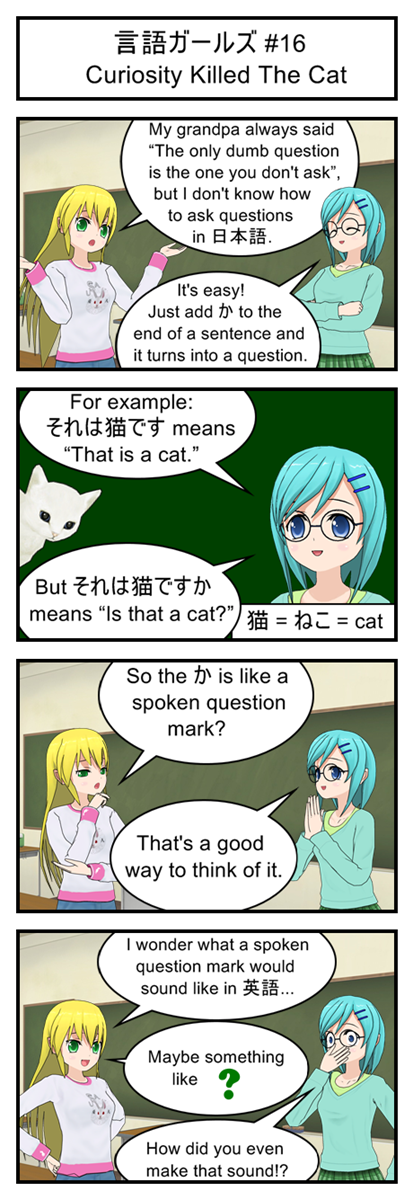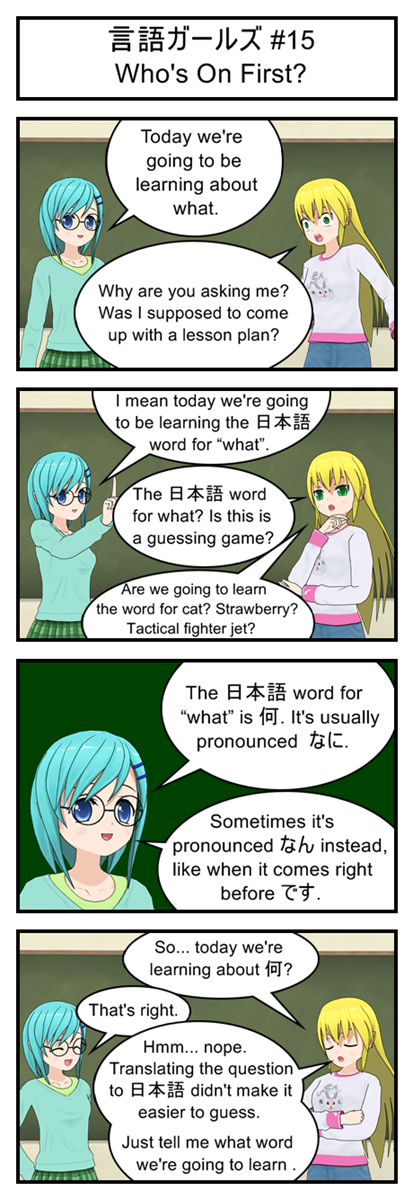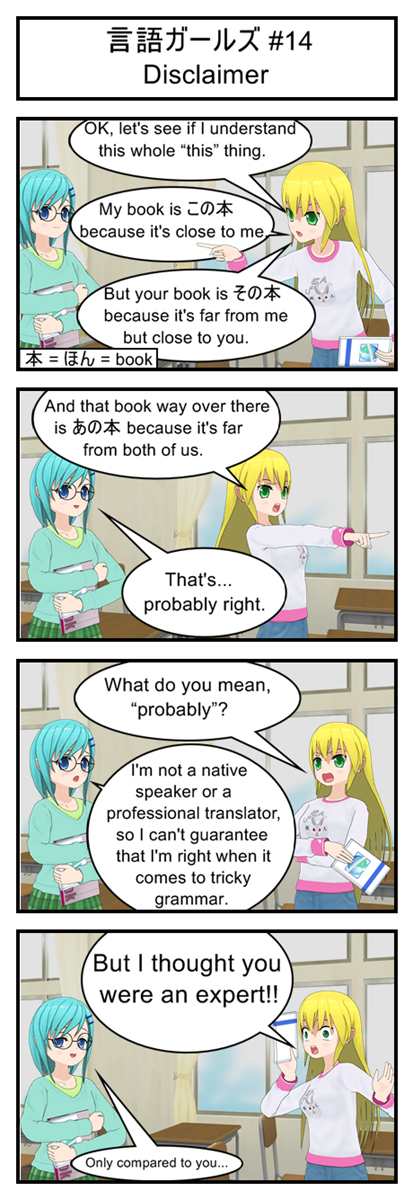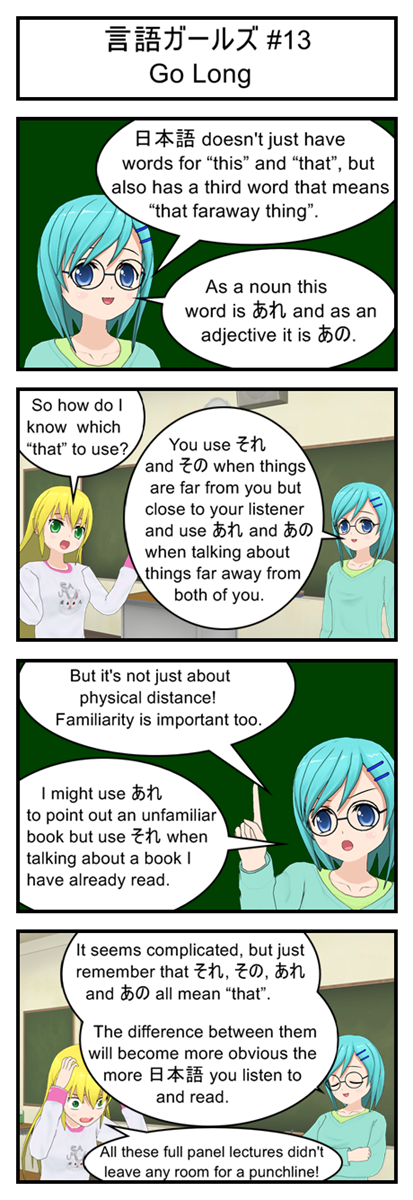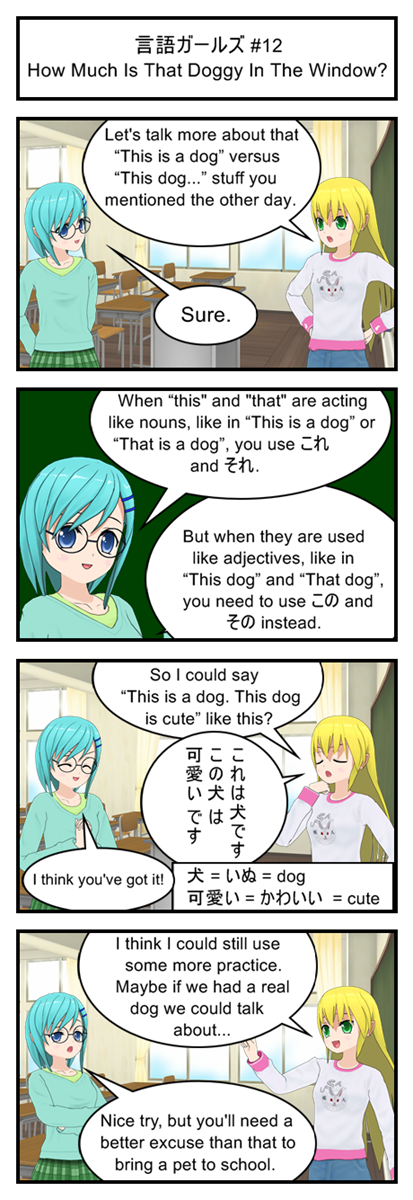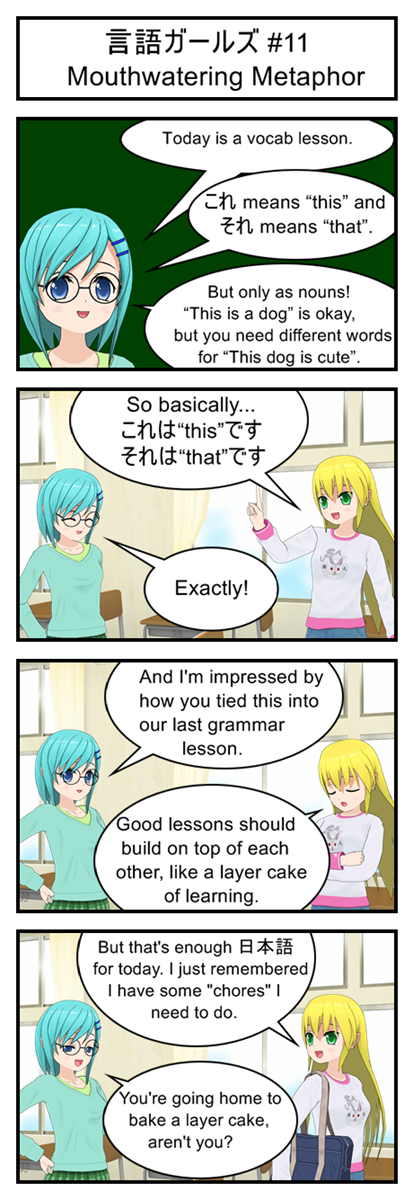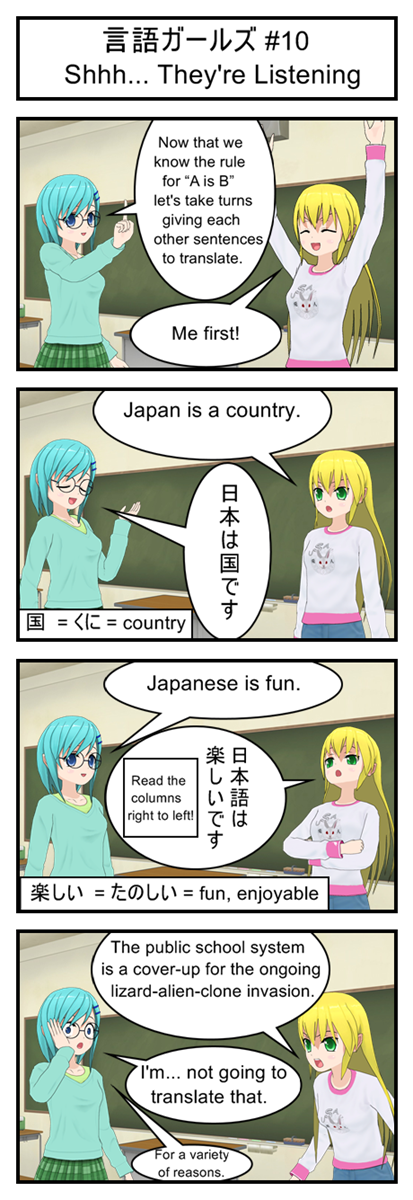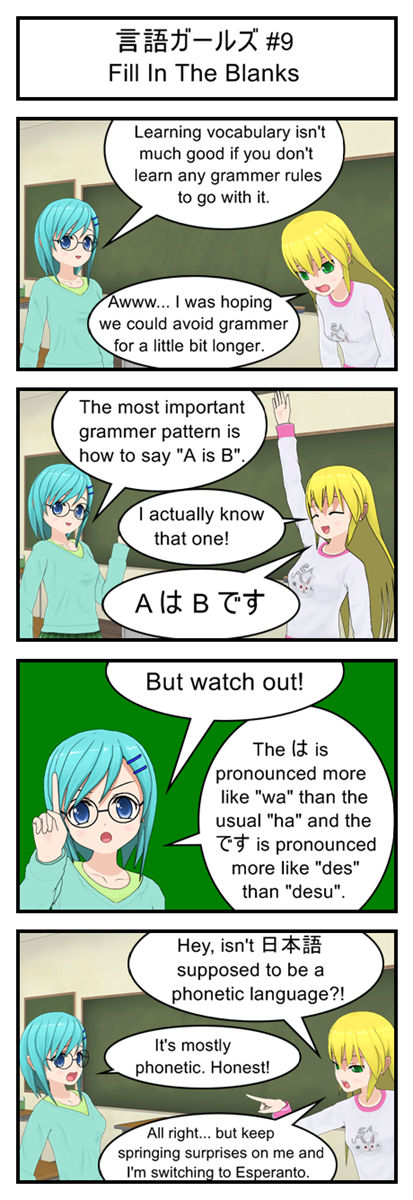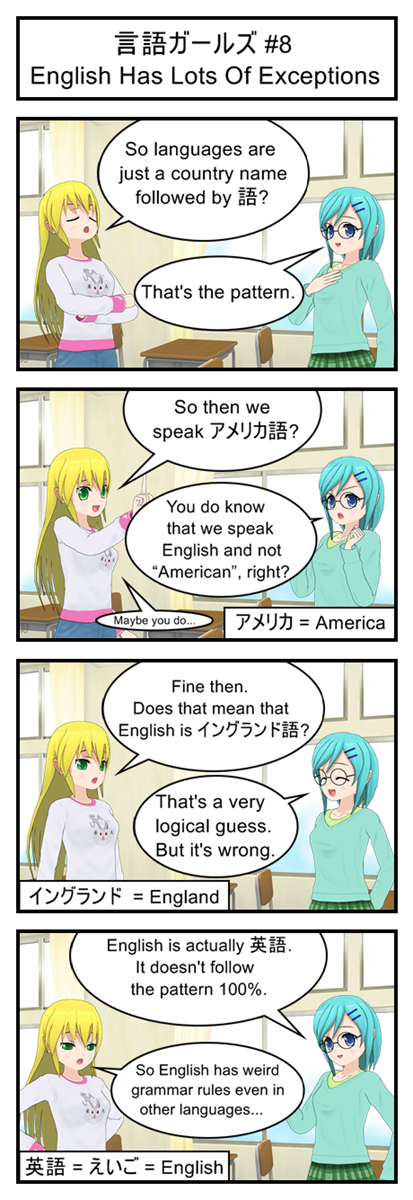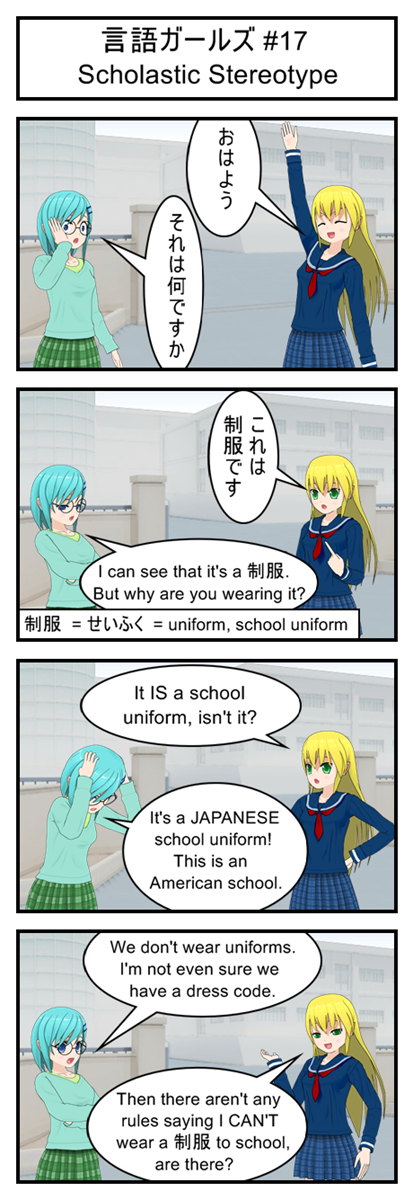
Remember that 何です is pronounced “nan des” instead of “nani desu”, probably due to a phenomenon I have dubbed “The Efficiency Slur”.
My guess is that most people hate using more syllables than they have to, especially for very common words and phrases. So they drop a few letters, slur a few sounds together and suddenly everyone is going around saying “It’s” instead of “It is” and “nan des” instead of “nani desu”.
So here’s a fun project for any really bored linguists out there: Calculate how many syllables the average person “saves” by using contracted words. I’m betting the savings from “It’s” alone will be enough to add an entire day to my lifespan that would have otherwise been wasted on two syllable “It is”.
Vocabulary
制服 = せいふく = uniform, usually a school uniform
Transcript
言語ガールズ #17
Scholastic Stereotype
Yellow: おはよう
Blue: それは何ですか
Yellow: これは制服です
Blue: I can see that it’s a 制服. But why are you wearing it?
Yellow: It IS a school uniform, isn’t it?
Blue: It’s a JAPANESE school uniform! This is an American school.
Blue: We don’t wear uniforms. I’m not even sure we have a dress code.
Yellow: Then there aren’t any rules saying I can’t wear a 制服 to school, are there?
